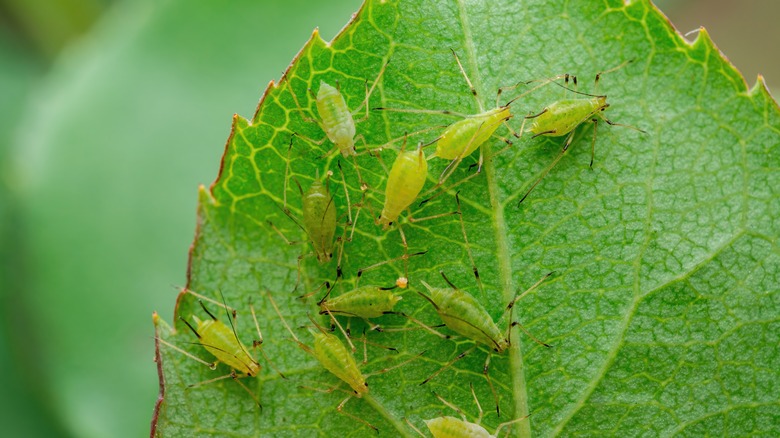How To Use Orange Peels To Keep Pests Out Of Your Plants (& Why They Work)
If you're an avid gardener, then you know that growing and tending to your plants presents you with a fair number of challenges. And chief among them is dealing with pests. There is nothing as disappointing as putting all your efforts into growing your favorite veggies only for them to be destroyed before you can even enjoy them. Although there are many ways of dealing with pests, quite a few of them are expensive, and some rely on harmful poisons that negatively impact the environment.
If you are in search of an organic, budget-friendly alternative, you may be surprised to find out that oranges might provide you with the protection your plants need. Although oranges are popularly known for their nutritional value and delicious taste, their remains are equally resourceful. Thus, while the idea of keeping pests off your plants using orange peels might appear unconventional, don't knock it until you've tried it. Still, the question remains: How exactly do orange rinds rid your plants of pests?
Two ways to use orange peels
There are two ways of using orange peels to ward pests away from your plants and garden. The first and easiest method is to chop them up into small bits. You can also grind them to release the pungent citrusy smell, making this method even more effective. Next, spread the pieces at the base of your plant. The disadvantage of this method is that the peels are only effective when fresh, so you will need to replace them as soon as they dry up and lose their smell. The alternative method that might last longer is boiling the peels in water and using the resulting mixture as a pest-repellent spray.
No specific amount of peels is required for this method; however, the more, the better. This is especially true if you want to make enough solution for a larger-than-average garden. Before putting the liquid in a sprayer, you will need to give it a minute or two to cool before draining all the residue. Because keeping pests away should be a continuous process, spray your plants frequently, preferably after every few days, to ward off pesky interlopers.
Why pests hate orange peels
It is almost counter-intuitive to imagine that the refreshing scent of orange peels will keep pests out of your garden. However, most creepy crawlies killing the plants in your garden really don't like this scent. As such, the smell of citrus that remains on leftover peels is what will ultimately drive pests from your garden. By boiling orange peels in hot water, the liquid retains most of the fresh citrus smell, which is incredibly effective at keeping pests away, including mosquitoes, aphids, slugs, or even biting fleas.
While this trick might have gotten popular recently, its usage is nothing new. The beauty of this hack is that you can use it outdoors and indoors, unlike most chemical counterparts. Other than its insect-repelling properties, using orange peels on your plants also has other benefits. For instance, when the peels decompose, they add nitrogen to your soil, which helps new crops grow. So it's no wonder some farmers use oranges and other citrus fruits as part of their fertilizer mix (via Conserve Energy Future).
Proceed with caution to avoid other problems
Orange peels are a great organic solution for repelling common garden pests, but their biodegradable nature can introduce some other issues. Firstly, while pests like aphids may avoid the strong-smelling citrus, birds, possums, rats, and other rodents may have no problem nibbling on the orange peels. If you follow the chop-and-drop method of using orange peels in your garden, beware that these critters may come to collect your peels. If you notice orange peels disappearing or an influx of animals around your home, you may need to remove the remaining peels to avoid them eating your produce or encountering children and pets.
Animals aren't the only thing that will happily digest orange peels. Keep an eye out for mold or other fungi growths where you drop your chopped orange peels or spray the orange solution. Mold shouldn't crop up as long as the area is exposed to sufficient sunlight and airflow, but if the soil or the orange peels stay damp for long periods of time, the natural sugars could turn the peels into a breeding ground for mold and mildew. If you notice any mold, promptly remove the orange peels from your garden, throw them in the trash, and allow the soil to dry before watering plants again. If the mold remains, check out other kitchen ingredients that'll destroy fungus in your garden.



